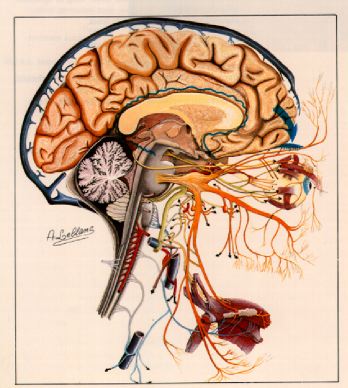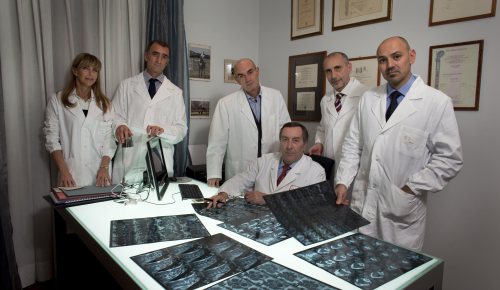
Neurovascular Conflict
Micro-neurovascular decompression (MVD) in posterior cranial fossa
The syndromes of cranial nerve dysfunction are linked in many cases to a “micro vascular compression ” along the nerve, usually at the level of the entry or exit zone of the nerve from the brainstem.
The most common syndromes are:
- Trigeminal neuralgia (5th cranial nerve – superior cerebellar artery or petrosal veins)
- Hemifacial spasm (7th cranial nerve – anterior inferior cerebellar artery or vertebral artery)
- Disabling paroxystic/postural vertigo (vestibular nerve – anterior inferior cerebellar artery or vertebral artery)
- Glossopharyngeal neuralgia (9th cranial nerve – posterior inferior cerebellar artery or vertebral artery).
It is possible that some cases of severe juvenile arterial hypertension resistant to pharmacological therapy and spasmodic torticollis may be caused by “conflicts” between arteries of the posterior cranial fossa and, respectively, the vagus nerve and the spinal accessory nerve.
References :
http://neurinoma.forumcommunity.net/?t=28439789
Attachments :




